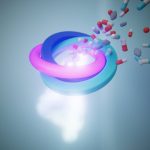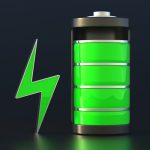Scientists develop ultra-thin coating that could prevent corrosion for years
MIT researchers have created a new type of polymer film that is so tightly sealed it can stop even the smallest gas molecules from...
Scientists discover low-cost way to recover lithium from battery waste
Lithium is one of the most important materials in modern technology.
It powers rechargeable batteries for phones, laptops, electric cars, and large-scale energy storage.
But lithium...
Scientists convert methane into valuable bioactive molecules for the first time
Natural gas is one of the most abundant energy resources on Earth, and most of it is made of methane along with smaller amounts...
Scientists create high-performance sodium battery without flammable liquids
Batteries power nearly everything we use today—from smartphones and laptops to electric vehicles.
But the most common types, lithium-ion batteries, come with serious drawbacks.
They rely...
New “energy sandwich” design could revolutionize solar power and lighting
Scientists have made a major breakthrough in controlling the atomic structure of halide perovskites, a promising class of materials that could change the future...
Spray 3D printing could reinvent how we build earthquake-proof buildings
Concrete 3D printing is revolutionizing the building industry by cutting costs and construction time.
However, most current systems use an extrusion-based method, laying down concrete...
Eco-friendly” bamboo dishes may not be so safe after all, study warns
Bamboo cups and plates are often sold as green, natural alternatives to plastic tableware.
But a new study shows that many of these “eco-friendly” dishes...
Bacterial spores could create self-healing, sustainable building materials
Scientists are bringing the concept of “living materials” one step closer to reality by using one of nature’s toughest survivors—bacterial spores.
A team of researchers,...
Cooling paint that pulls water from the air could transform cities and farms
Scientists in Australia have developed a remarkable new paint-like coating that can keep buildings cool and collect fresh water straight from the air—without using...
Scientists create artificial proteins that can store and conduct electricity
Scientists in Spain have developed a new class of artificial proteins that can conduct and store electricity—paving the way for safer, faster, and more...










